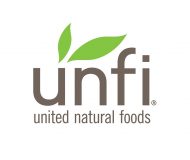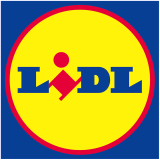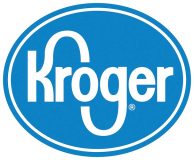Last updated on January 15th, 2019 at 08:27 am
The top 10 stories in the Southeast over the past year have largely been related to stores, whether it was competitive pressures causing stores to be sold or successful grocers expanding into new territories.
1. Southeastern Grocers files Chapter 11
The Jacksonville, Florida-based grocer that operates Winn-Dixie, Bi-Lo, Harveys and Fresco y Mas stores filed a prepackaged Chapter 11 in mid-March, which included the closing of 94 stores. Those divestitures left Southeastern Grocers (SEG)—which is controlled by private equity firm Lone Star Funds—with 582 stores in the Southeast. Piggly Wiggly operators picked up three Bi-Los in South Carolina and three Harveys stores in Georgia; Alabama wholesaler Mitchell Grocery Corp. purchased three Winn-Dixies in Alabama on behalf of two of its customers; and Thibodaux, Louisiana-based Rouses Markets purchased a Winn-Dixie in Orange Beach.
SEG said its restructuring allows it to invest more cash flow back into the business in the form of increased capital expenditures for store remodels and new stores. It emerged from Chapter 11 on May 31.
In late July, SEG sold eight Winn-Dixies in south Louisiana to Texas-based Brookshire Grocery Co., which turned the stores into Super 1 Foods locations.
2. Supervalu exits Farm Fresh banner
In mid-March Supervalu announced that it would exit the 38-store Farm Fresh Food & Pharmacy operation in Virginia and North Carolina, which it had operated since 1999 as part of its acquisition of Richfood Holdings. Twenty-one of the stores were sold to three buyers. Harris Teeter, the North Carolina-based division of The Kroger Co., bought 10 stores in Virginia; Kroger Mid-Atlantic bought eight stores in Virginia; and Food Lion bought three stores, two in Virginia and one in North Carolina.
Of the 17 remaining stores, it was reported that 11 of them were shut down. Three were sold to independent grocers who are keeping the Farm Fresh name on the stores, according to local newspapers. These are located in Virginia Beach, Newport News and Charlottesville.
The Farm Fresh exit was part of Supervalu’s goal to focus on its wholesale business rather than retail. It would not be long before Supervalu itself would be sold.
3. UNFI acquires Supervalu
 In a deal that affects the entire U.S., United Natural Foods Inc. (UNFI) in October finalized its acquisition of Supervalu in a deal worth about $2.9 billion, including the assumption of outstanding debt and liabilities. The deal first was announced July 26.
In a deal that affects the entire U.S., United Natural Foods Inc. (UNFI) in October finalized its acquisition of Supervalu in a deal worth about $2.9 billion, including the assumption of outstanding debt and liabilities. The deal first was announced July 26.
Providence, Rhode Island-based UNFI, a natural and organic products distributor, gained access to a full line of mainstream grocery items with the Supervalu acquisition as well as expanded UNFI’s customer base and exposure across channels; Minneapolis-based Supervalu says the deal not only should be a boon to shareholders but also should be beneficial for its wholesale customers, thanks to access to UNFI’s product lines.
Sean Griffin, previously UNFI’s COO, serves as CEO of Supervalu and head of the integration committee, which includes executives from both companies. Reporting to Griffin are former Supervalu executives Anne Dament, EVP of retail, marketing and private brands, and Mike Stigers, EVP of wholesale, who will support the Supervalu business operations.
Chris Testa serves as president of UNFI.
An update on the integration efforts will be presented on Jan. 16, 2019, on UNFI’s investor day.
4. Kroger, Walgreens testing new format in Kentucky
In early October, The Kroger Co. and Walgreens announced they were collaborating on a new concept that combines Kroger’s grocery expertise with Walgreens’ pharmacy, health and beauty expertise.
Thirteen Walgreens stores in northern Kentucky, near Kroger’s Cincinnati headquarters, will pilot the format over the next several months, listening closely to customer feedback.
At the test stores, customers will be able to order Kroger grocery items online and pick up their order at the Walgreens. Kroger’s Our Brands grocery items—including Simple Truth—also will be available in-store at the participating Walgreens.
“This exciting collaboration aligns with Kroger’s vision of serving America through food inspiration and uplift,” said Rodney McMullen, Kroger’s chairman and CEO. “This concept brings together the best of two great brands to rethink convenience and redefine the way America shops for food.”
5. Lidl—opinions vary on success
 While an Oliver Wyman survey showed that hard discounter Lidl is resonating with grocery consumers in a meaningful way, the German company continued to curtail its planned growth over the past year. It had planned to have 100 stores open by summer 2018; at press time, 58 stores were open on the East Coast, with two November openings planned for New Jersey—Union and Hazlet.
While an Oliver Wyman survey showed that hard discounter Lidl is resonating with grocery consumers in a meaningful way, the German company continued to curtail its planned growth over the past year. It had planned to have 100 stores open by summer 2018; at press time, 58 stores were open on the East Coast, with two November openings planned for New Jersey—Union and Hazlet.
Oliver Wyman’s independent survey found that 48 percent of 600 consumers who tried Lidl are now shopping there on a regular basis, defined as more than twice per month. Consumers also are spending more money per shopping trip at Lidl today than a year ago, indicating they have found a wider range of products they prefer. Younger shoppers—aged 18 to 34—had a particularly high awareness of Lidl and shopped there frequently, appreciating both Lidl’s private label product quality and their prices, according to the survey.
But some say Lidl made some real estate mistakes, putting stores too far out of traffic patterns, and that competitors braced for Lidl’s openings by cutting prices on key items.
Lidl also named a new president and CEO of its U.S. Division in May. Johannes Fieber assumed responsibility for U.S. operations, succeeding Brendan Proctor, who led the company’s U.S. expansion since June 2015. Fieber formerly was CEO of Lidl Sweden.
6. Lucia concludes long career at Kroger

Bruce Lucia retired as president of Kroger Atlanta effective Sept. 1, following 44 years of service with Kroger, 18 of them in his current role.

He began his career with Kroger in Atlanta in 1974 as a clerk. After graduating from the University of Georgia, he served as a store manager, field specialist and district manager in the Atlanta division. From 1987-96, he went on to hold leadership roles in Kroger’s Nashville, Central, Columbus and Michigan divisions, before being named Michigan division president in 1996.A year later, he was appointed president of the Columbus division. Lucia returned to Atlanta in his current role in 2000.
Lucia was succeeded in Atlanta by Cincinnati/Dayton Division President Tim Brown, who worked in the Atlanta division earlier in his career as VP of merchandising.
7. The Fresh Market closes 15 underperforming stores
The Fresh Market Inc. announced July 9 that it planned to close 15 stores in Georgia, Illinois, Indiana, Kentucky, North Carolina, New Hampshire, Tennessee, Virginia and Wisconsin.
CEO Larry Appel noted that the company has been in the midst of a “turnaround plan” for the past eight months; he joined the company in September 2017.
 While “we’ve seen great progress,” Appel said, “for a variety of reasons unique to each retail location, that progress is not evenly distributed and, as a result, we have decided to close these long-term, underperforming stores. We will work to relocate as many impacted employees as possible to other stores within our footprint.”
While “we’ve seen great progress,” Appel said, “for a variety of reasons unique to each retail location, that progress is not evenly distributed and, as a result, we have decided to close these long-term, underperforming stores. We will work to relocate as many impacted employees as possible to other stores within our footprint.”
At the end of April this year, the Greensboro, North Carolina-based specialty grocer operated 176 stores in 24 states.
The Fresh Market said it considered the overall growth strategy and long-term financial performance of the company when making the decision to close those stores, but said it did “not expect any further store closures in the foreseeable future.”
8. Kroger exits the Raleigh‑Durham market
In June, Kroger Mid-Atlantic announced its decision to exit its 14 stores in the Raleigh-Durham, North Carolina, market, impacting about 1,500 associates. The Raleigh-Durham area Kroger stores were expected to close on or about Aug. 14. Kroger had operated stores in that market since 1989.
 Jerry Clontz, president of the Mid-Atlantic division of Kroger, said of the decision to leave the market: “While we have had some success, we have not been able to grow our business the way we would like in this market. The retail environment is challenging and changing in Raleigh-Durham. Many retail analysts say the Raleigh-Durham market is overstored.”
Jerry Clontz, president of the Mid-Atlantic division of Kroger, said of the decision to leave the market: “While we have had some success, we have not been able to grow our business the way we would like in this market. The retail environment is challenging and changing in Raleigh-Durham. Many retail analysts say the Raleigh-Durham market is overstored.”
Eight of the stores remain part of the Kroger organization; they were purchased by Kroger’s wholly-owned subsidiary Harris Teeter, which is based in Matthews, North Carolina.
Food Lion also picked up a store in Raleigh that it said it would extensively remodel before reopening it in early 2019.
9. Publix to create 700 new jobs with corporate expansion
Publix Super Markets is expanding its headquarters in Lakeland, Florida, with 700 additional jobs expected to be created by the end of 2027. Florida Gov. Rick Scott and Publix President and CEO Todd Jones made the announcement at a press event on Sept. 27.
Jones said, “These additional jobs will help us support our store associates as they continue to provide the premier service our customers expect.”
Since construction on Publix’s current corporate office was announced in 2001, Publix has entered three additional states, more than doubled its annual sales, opened more than 500 new stores and added about 70,000 associates.
Publix now has 1,198 stores in Florida, Georgia, Alabama, Tennessee, South Carolina, North Carolina and Virginia.
The grocer also will have a new president on Jan. 1, 2019; see story on page 1.
10. Wegmans pushing farther south
![]() New York-based Wegmans Food Markets said in August that it is hiring for a new store in Virginia Beach, Virginia, that is set to open in spring 2019 near the intersection of Virginia Beach and Independence Boulevards. The new location will be Wegmans’ southernmost store to date.
New York-based Wegmans Food Markets said in August that it is hiring for a new store in Virginia Beach, Virginia, that is set to open in spring 2019 near the intersection of Virginia Beach and Independence Boulevards. The new location will be Wegmans’ southernmost store to date.
The 113,000-s.f. store will employ approximately 500 people, the majority of whom will be hired locally.
Other Wegmans store sites in Virginia have been disclosed; opening dates to come: Alexandria (Carlyle)—Eisenhower Avenue exit off Interstate 495 in Fairfax County; Arcola—Dulles West Boulevard and Loudoun County Parkway in Loudoun County; Reston—Dulles Toll Road (VA Route 267) and Reston Parkway in Fairfax County; and Tysons Corner—Capital Beltway and Route 123 in Fairfax County.
Keep reading:






